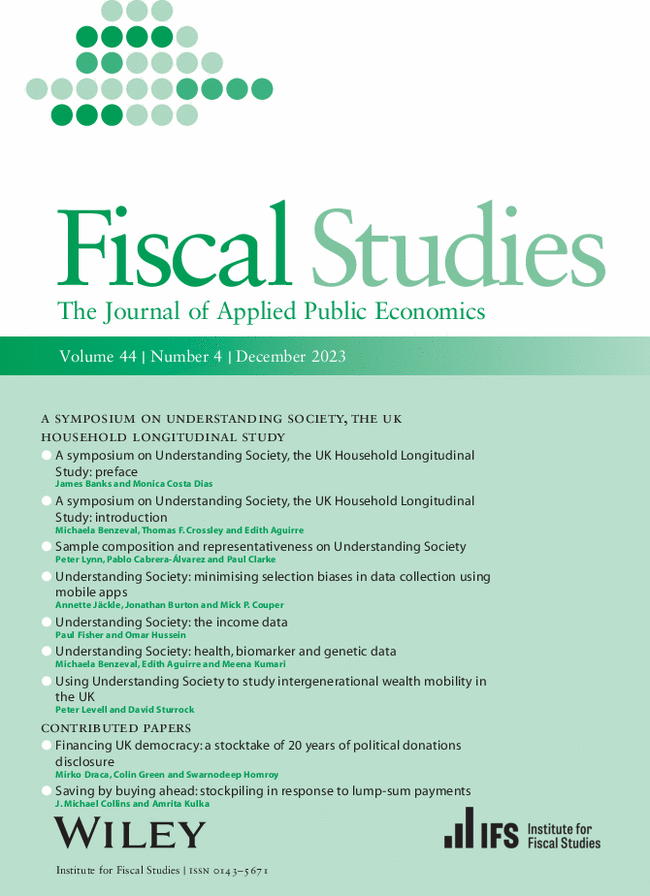财富税:是时候重新审视了吗?
IF 2.2
3区 经济学
Q2 BUSINESS, FINANCE
引用次数: 1
摘要
甚至在新冠肺炎疫情后的财政动荡之前,世界各地关于对财富存量征收新税(“财富税”)的提议就已经越来越受欢迎。皮克提关于全球财富税的“乌托邦理想”可能是最突出的例子。1在美国,Saez和Zucman(2019)提出的新财富税被2019年民主党初选的知名候选人采纳。经合组织最近对其成员国内已经实施的财富税进行了广泛的审查,2新的实证研究也考察了现有财富税对发展中国家的影响。新冠肺炎危机加速了人们对财富税的兴趣。首先引人注目的是阿根廷,该国于2020年12月通过了一项针对其最富有公民(资产超过250万美元)的一次性新税,以支付医疗用品和救济措施。4 2021年4月,为了应对人们对疫情期间世界上最富有的个人财富激增5万亿美元的担忧,联合国秘书长敦促各国政府考虑引入新的“团结或财富税”。5国际货币基金组织还建议各国考虑对高财富征税,强调在从新冠肺炎危机中复苏的背景下,“这种捐款的象征性影响”。本文章由计算机程序翻译,如有差异,请以英文原文为准。
Taxes on wealth: time for another look?
Around the world, proposals for new taxes on the stock of wealth (a ‘wealth tax’) were gaining traction even before the fiscal tumult that has followed the COVID-19 pandemic. Piketty's ‘utopian ideal’ of a global wealth tax is perhaps the most prominent example.1 In the US, a new wealth tax proposed by Saez and Zucman (2019) was taken up by prominent candidates for the 2019 Democratic primaries. The OECD recently conducted a wide-ranging review of the wealth taxes already in operation within its member countries,2 and new empirical research has also examined the impacts of existing wealth taxes in a developing country context. The COVID-19 crisis has accelerated this interest in wealth taxes. First off the mark was Argentina, which in December 2020 passed a new one-off levy on its wealthiest citizens (with assets over $2.5 million) to pay for medical supplies and relief measures.4 In April 2021, in response to concerns about a $5 trillion surge in the wealth of the world's richest individuals during the pandemic, the UN Secretary-General urged governments to consider introducing a new ‘solidarity or wealth tax’.5 The International Monetary Fund has also recommended that countries consider taxes on high wealth, emphasising the ‘symbolic impact of this type of contribution’ in the context of recovery from the COVID-19 crisis.
求助全文
通过发布文献求助,成功后即可免费获取论文全文。
去求助
来源期刊

Fiscal Studies
Multiple-
CiteScore
13.50
自引率
1.40%
发文量
18
期刊介绍:
The Institute for Fiscal Studies publishes the journal Fiscal Studies, which serves as a bridge between academic research and policy. This esteemed journal, established in 1979, has gained global recognition for its publication of high-quality and original research papers. The articles, authored by prominent academics, policymakers, and practitioners, are presented in an accessible format, ensuring a broad international readership.
 求助内容:
求助内容: 应助结果提醒方式:
应助结果提醒方式:


